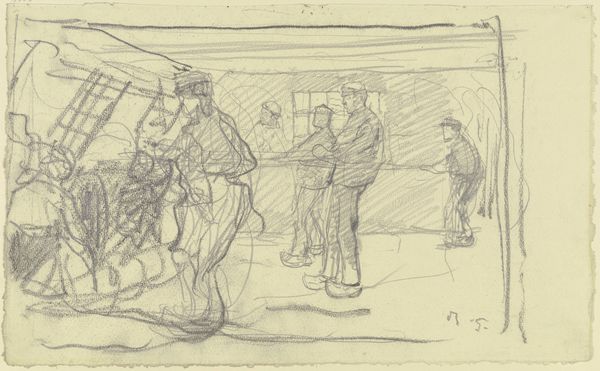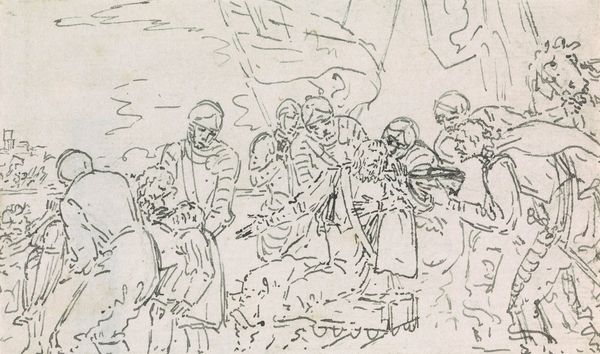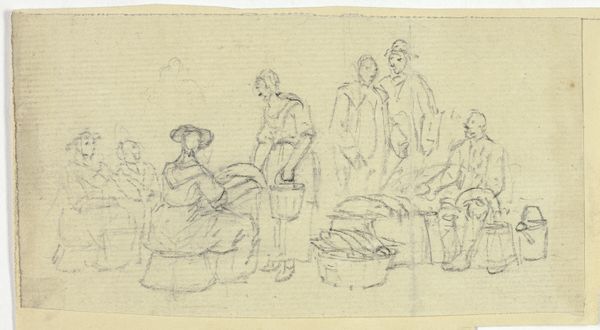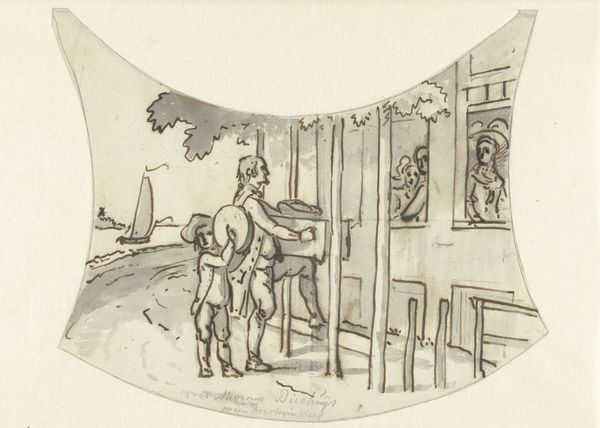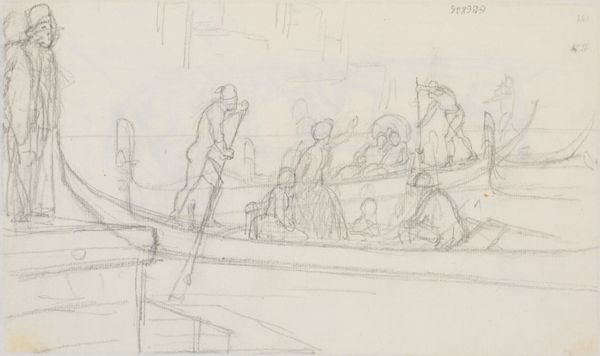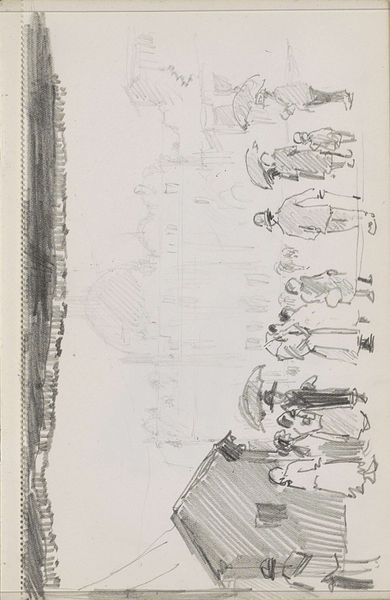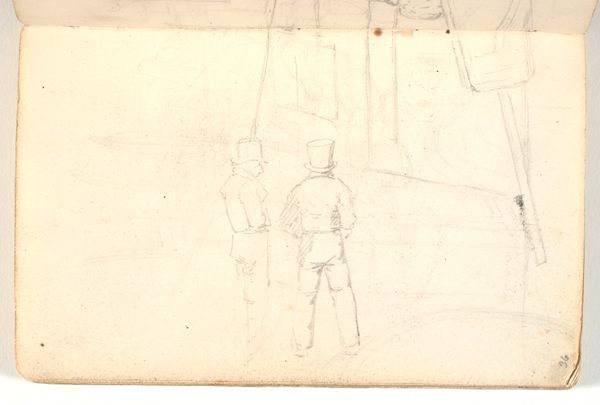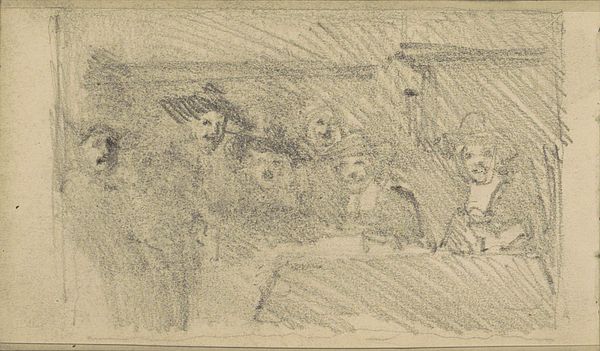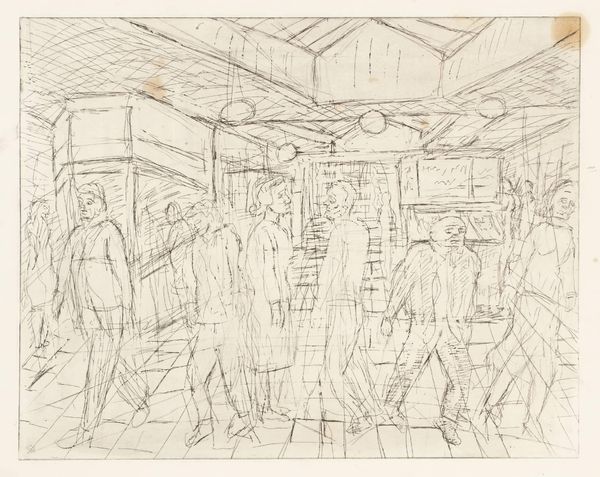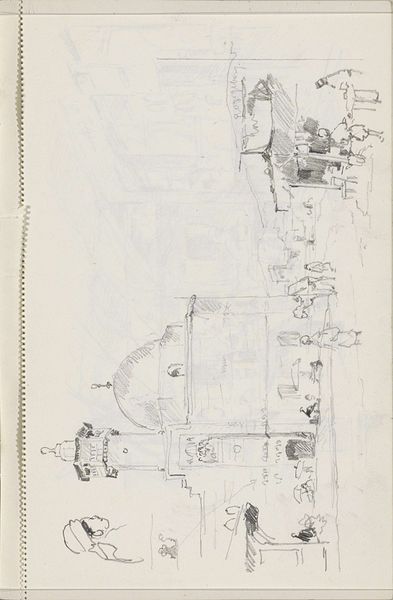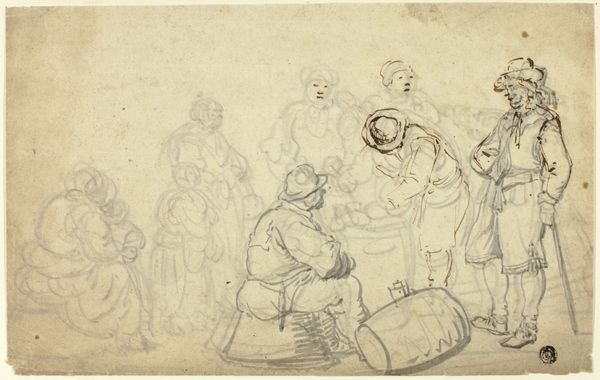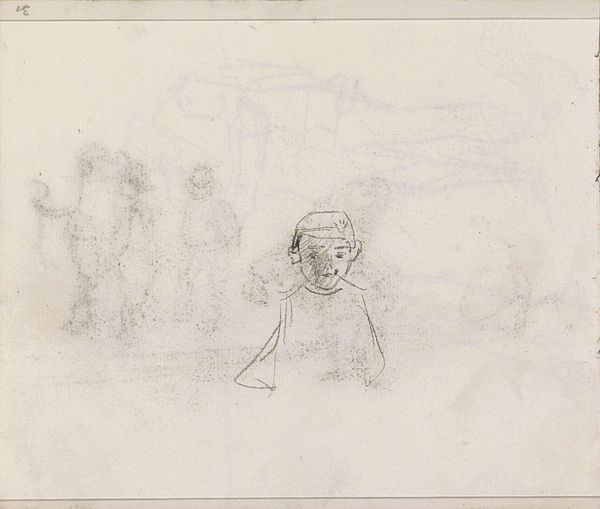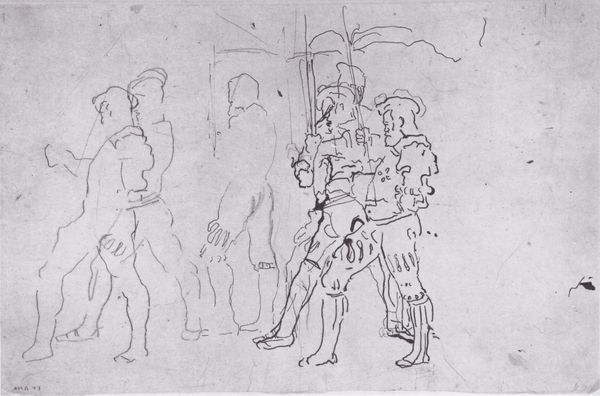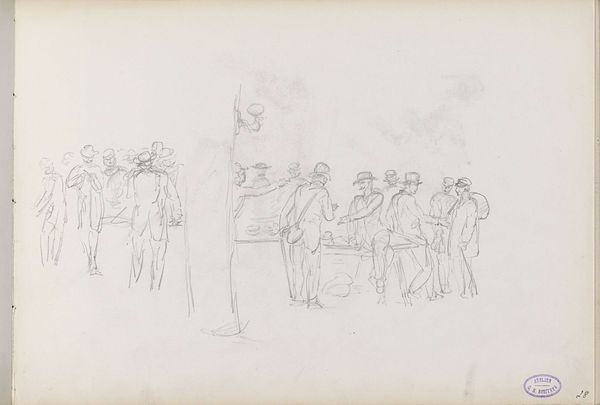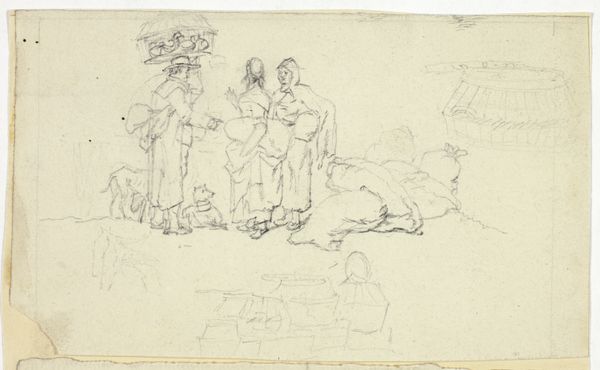
drawing
#
portrait
#
drawing
#
figuration
#
group-portraits
#
realism
Copyright: Public domain
Editor: Here we have Vasily Perov's "Regular Pool," created in 1865. It's a drawing, a sketch really, depicting a group of people gathered around what I assume is a water source. They look weary, maybe even impoverished. What story do you see in this piece, considering its historical context? Curator: Well, seeing it as a historian, I'm immediately drawn to the social realities it depicts. Perov was a critical realist, committed to portraying the lives of ordinary Russians. This drawing, even in its sketch-like form, hints at the communal nature of resource gathering, something dictated by necessity for many at the time. Notice the gridlines, a common practice for transferring sketches to larger paintings. Knowing this suggests this was preparatory work. But for what purpose? Editor: So, it’s less about an isolated moment and more about a representation of a broader social condition? Is the fact that he didn't fully render the image itself a form of social commentary? Curator: Precisely. The unfinished nature of the sketch, the anonymity of the figures, contribute to a sense of universality. Perov's paintings often acted as indictments of social inequality. So consider the public role of such a work; the impact it would have in a society grappling with serfdom and its eventual abolition. Does the sketch lack finish or add another dimension, asking viewers to contemplate not just *who* they are but *why* their circumstances demand queuing for basic necessities? Editor: That's a very different way of thinking about it! I tend to look for emotional content, but you're focusing on the societal function of the piece and Perov's own position within it. Curator: Indeed. Art doesn't exist in a vacuum. By understanding the socio-political landscape, we gain deeper insights into both the artist’s intentions and the art's potential effect. It gives it another layer of complexity. Editor: Thank you. It is useful to get insights from another lens to see things differently. Curator: My pleasure. Thinking about that helps broaden my horizons, too.
Comments
No comments
Be the first to comment and join the conversation on the ultimate creative platform.
